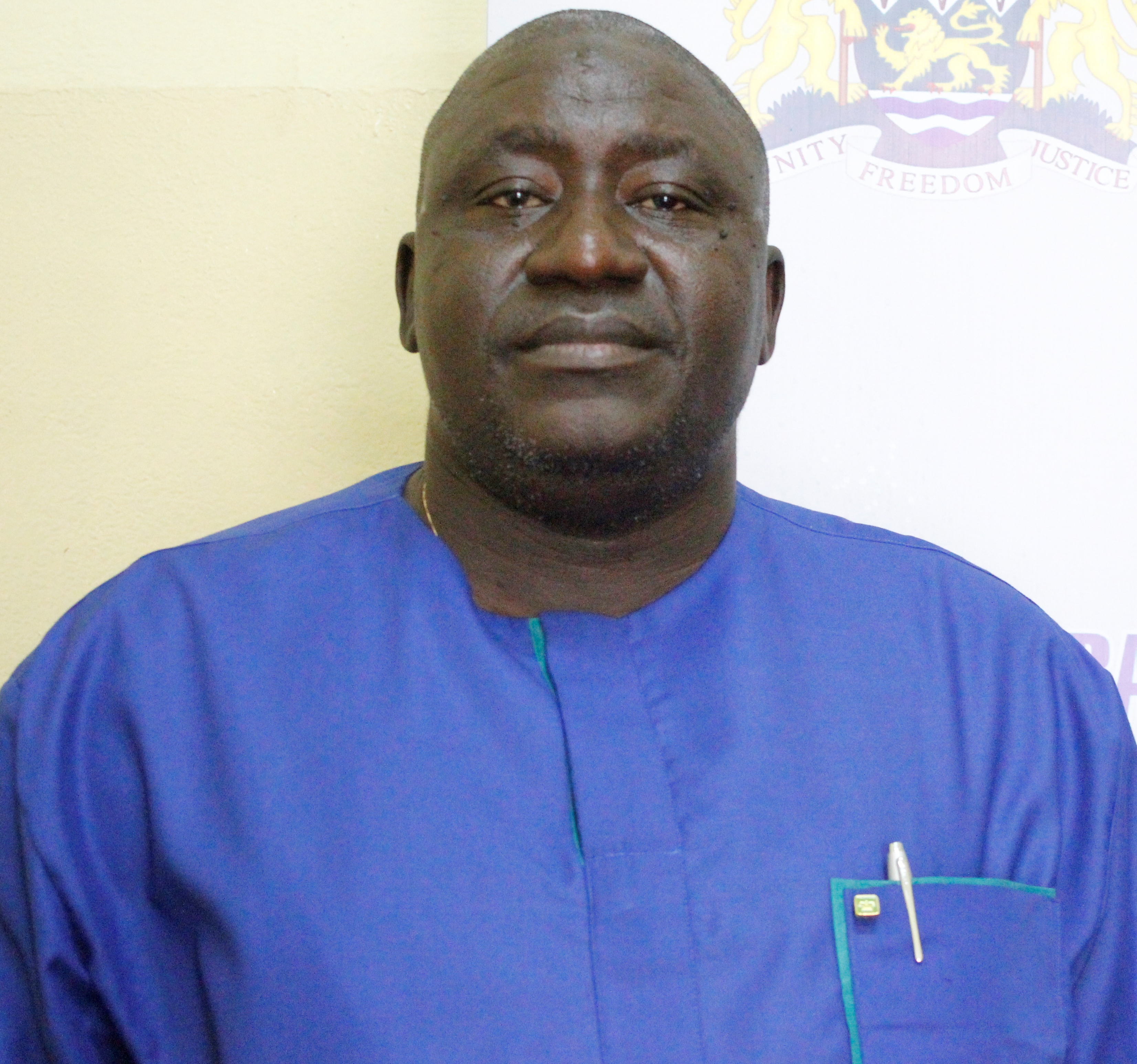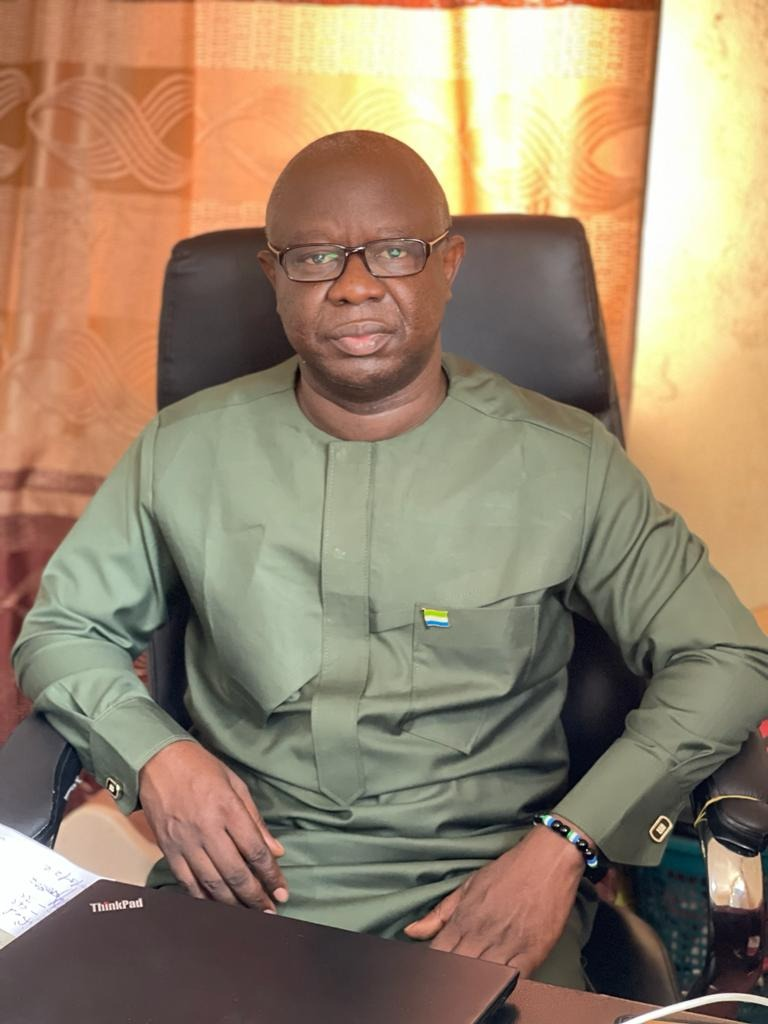THE NATIONAL CIVIL REGISTRATION AUTHORITY (NCRA)
In 2012, the Government of Sierra Leone requested the United Nations Development Programme (UNDP) to conduct a scoping mission on the civil registration landscape in the country. The report of that mission discovered the need for a consolidated civil registration system to replace the existing truncated and uncoordinated systems. The databases of the previous disorganized systems were unconnected to each other resulting to multiple identity documents, inability to consolidate vital statistics, and waste of resources. Hence, a “National Policy on Civil Registration Reform in Sierra Leone” was developed and approved by the Cabinet of the Government of Sierra Leone. Consequently, the UNDP hatched out a project pact entitled – Support to an Integrated National Civil Registration System in Sierra Leone (2015-2017).
Through series of consultations and in collaboration with UNDP, the Law Officers Department drafted the National Civil Registration Bill in 2015 which later became a law on the 30th June, 2016 as promised by the reform process. Before then, the project was managed by stakeholders organized into two interest groups – Steering Committee, being the highest decision making body and comprising of line ministries and development partners; and the Civil/Voter Registration Task force comprising of representatives from MDAs, donors, civil society organizations and other project ecosystem partners.
The National Civil Registration Act, 2016 establishes the National Civil Registration Authority (NCRA) and provides for the compulsory registration of Citizens and non-citizens resident in Sierra Leone, as well as, provides the registrants with a multi-purpose identity card.
The Act further empowers NCRA to register all civil status events occurring in Sierra Leone including registering births, adoptions, marriages, divorce and deaths among others throughout Sierra Leone. With the advent of this Act and by implication, various other Registration related activities can no longer be performed by the traditional institutions for example registration of births and deaths by the National office for Births and Deaths, registration of marriages and divorces by the Office of the Administrator and Registrar General, etc. but will instead be undertaken by the NCRA as stipulated in the Act.
With a mandate to register citizens and non-citizens resident in Sierra Leone, the NCRA and the National Electoral Commission (NEC) jointly conducted voter and civil registration nationwide to serve as a base for the establishment of Sierra Leone’s National Civil Register and the setting up of permanent registration centers for the continuous registration of vital events in Sierra Leone. NCRA and NEC embarked on a two-phased registration system. A total of 3,300 registration centres were established during the two-phased registration model. During the first phase led by NEC from 20th March to 30th April 2017, the registration targeted only Sierra Leonean citizens born on or before 7th March 2000 and were able to capture 3,128,967 registrants from the total population of 7,075,641 (SSL, 2015). During the NCRA led registration (Mass Civil Registration) phase which commenced on 15th May 2017 and ended on 18th June 2017, the registration focused on registering every resident in Sierra Leone except for those that registered during the NEC led registration phase. 2,085,314 people were registered during the mass civil registration exercise. Thus 5.2 million people were registered including duplicates as against the estimated Statistics Sierra Leone (SSL) 7 million population is with the NCRA awaiting exhibition.
The enactment of the National Civil Registration Act, 2016 and the subsequent appointment of the members of the Board and the Director General, the setting up of District and Regional Offices, establishment of an ICT infrastructure installed at the NCRA headquarters and District Registration Offices are milestones in the civil registration reform process in Sierra Leone. The establishment of permanent registration centers beyond the districts is yet to be accomplished. Although a pilot civil registration was carried out between March and June, 2017, we are yet to establish the civil registration system that will cover all the civil events of births, deaths, marriages, divorce, adoption and nullities. However, in the third and fourth quarters of 2017, the UNDP contracted Price Waterhouse Coopers (PwC) to facilitate the development of a roadmap for a comprehensive Civil Registration and Vital Statistics (CRVS) system for Sierra Leone. The resultant documents from PwC engagement include the Capacity Development and Governance Structure, Strategic Plan, ICT roadmap, policies and procedures for the registration, archiving and sharing of all the vital events prescribed in the NCR Act.
Mandate
The Authority shall, Pursuant to the NCR Act, be responsible for the continuous, permanent and compulsory recording of occurrences and characteristics of vital events including births, deaths marriages, divorces, nullities, adoptions.
The Structure of NCRA
According to section 3 of Part II of the NCR Act of 2016, the National Civil Registration Authority (NCRA) will be governed by the Board headed by a chairperson. The governing Body of the Authority shall be a board in which shall be vested the control and supervision of the Authority. The Board shall consist of a Chairman and the following members;
- Statistician General-Statistics Sierra Leone
- The Permanent Secretary-Internal Affairs
- The National Security Coordinator
- The Financial Secretary
- The Chief Medical Officer
- Five other members of which two shall be representatives of women organizations
In accordance to the Act, the Board, will among other things, have control and supervision of the Authority, including overseeing the sound and proper financial management of the Authority.
Mission, Vision, and Core Principles
Mission Statement
To continuously register all vital events (births, deaths, adoptions, marriages, divorce and nullities), provide reliable vital statistics and multi-purpose identification documents and ensure access to Citizens and non-Citizens residents in Sierra Leone.
Vision
A well-functioning, integrated and reliable CRVS and ID Management system that serves the needs of the Citizens and non-Citizen residents.
Core Principles
Integrity
Professionalism
Excellence
Transparency
Collaboration
Confidentiality
Accountability
OUR TEAM
Meet our highly qualified professionals stirring NCRA’s Boat

MR. SORIE FOFANA
Board Chairperson
MR. MOHAMED MUBASHIR MASSAQUOI
Director General